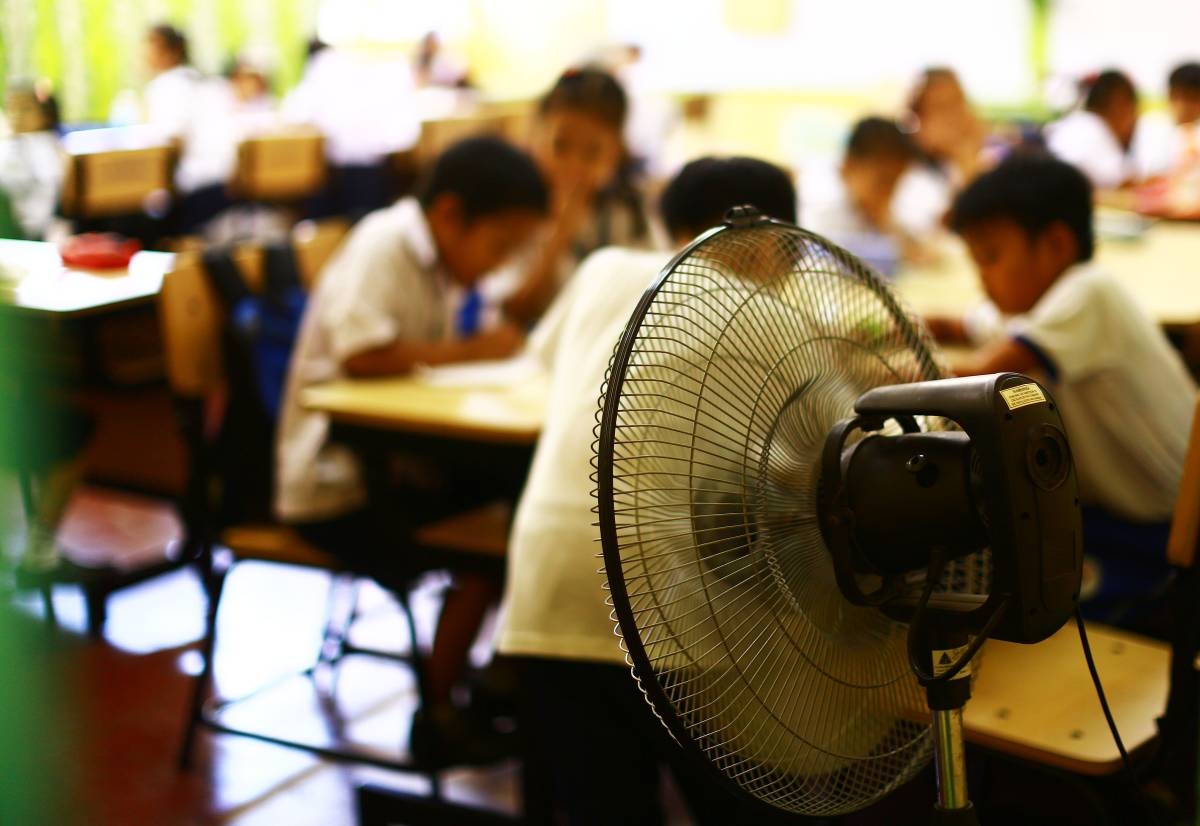President Marcos Jr. Calls for Reversion to Old School Calendar
In a recent announcement, President Ferdinand Marcos Jr. expressed his expectation for the Department of Education (DepEd) to revert to the old school calendar next year. The decision comes as face-to-face classes have been canceled due to the extreme hot weather caused by the El Niño phenomenon.
President Marcos Jr. revealed that he had discussed the matter with Vice President and Education Secretary Sara Duterte, urging her to develop a concerted plan for the reversion to the old calendar. He emphasized the urgency of the situation, stating, “It looks like we don’t need to wait any further, and it appears to be a much-needed change.”
The President further noted that there seemed to be no objections from anyone, especially considering the current El Niño conditions. The Education Department had previously stated its intention to submit a recommendation to Malacañang to end the school year 2024-2025 by March 2025, with the aim of reverting to the old academic calendar in the following school year.
The Significance of Reverting to the Old School Calendar
The decision to revert to the old school calendar holds significant implications for the education system in the Philippines. By understanding the context and local laws, we can better appreciate the rationale behind this move.
In the Philippines, the academic calendar typically begins in June and ends in March. However, in recent years, there have been discussions about aligning the country’s academic schedule with that of other international institutions. This would mean shifting the start of the school year to September and concluding it in June.
The proposed change aimed to facilitate the integration of Filipino students into global academic programs, enhance educational opportunities abroad, and align with the schedules of international universities. However, the cancellation of face-to-face classes due to the extreme hot weather caused by El Niño has prompted a reconsideration of this plan.
With the current weather conditions making it difficult for students to attend physical classes, the decision to revert to the old school calendar appears to be a practical and necessary step. By doing so, the education system can ensure that students are not unduly burdened by the challenges posed by the weather.
Considering Local Factors: El Niño and Its Impact
The El Niño phenomenon, characterized by unusually warm ocean temperatures in the equatorial Pacific, has far-reaching effects on weather patterns worldwide. In the Philippines, El Niño brings about prolonged dry spells, increased temperatures, and reduced rainfall.
These extreme weather conditions have significant implications for various sectors, including agriculture, water supply, and public health. The education sector is not exempt from the challenges posed by El Niño. The cancellation of face-to-face classes is a direct response to the health and safety concerns brought about by the intense heat.
By acknowledging the impact of El Niño on the education system, President Marcos Jr. demonstrates a proactive approach to addressing the needs of students and ensuring their well-being. Reverting to the old school calendar allows for a more suitable learning environment, as it aligns with the country’s weather patterns and mitigates the adverse effects of extreme heat.
Collaboration and Planning for a Smooth Transition
President Marcos Jr.’s call for Vice President Duterte and the Department of Education to develop a concerted plan highlights the importance of collaboration and thorough planning in implementing this change.
Transitioning back to the old school calendar requires careful consideration of various factors, including curriculum adjustments, scheduling of examinations, and coordination with educational institutions. It is crucial to ensure a smooth transition that minimizes disruption to students’ learning and maximizes the benefits of the revised calendar.
Additionally, this transition presents an opportunity to evaluate and address any existing challenges within the education system. By actively engaging with stakeholders, such as teachers, parents, and students, the government can gather valuable insights and feedback to inform future improvements.
Furthermore, the collaboration between the national government and local education authorities is vital in implementing the necessary changes effectively. Local laws and customs play a significant role in shaping the education landscape, and their consideration ensures that the transition aligns with the unique needs and circumstances of different regions.
Conclusion
The decision to revert to the old school calendar in the Philippines brings about important considerations for the education system. President Marcos Jr.’s call for this change acknowledges the challenges posed by the current extreme weather conditions and prioritizes the well-being of students.
By contextualizing the decision within the local context of El Niño and its impact, we gain a deeper understanding of the rationale behind the reversion. The collaboration and planning required for a smooth transition further emphasize the importance of involving all stakeholders in shaping the future of education in the Philippines.
As the implementation of the new plan unfolds, it is essential to remain attentive to the needs of students and responsive to any emerging challenges. By doing so, the education system can adapt and thrive, providing quality education while considering the unique circumstances of the Philippines.







